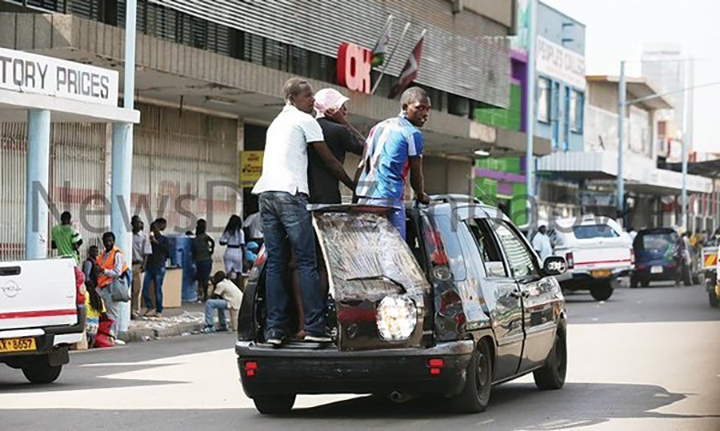
ZIMBABWE’s roads have once again become a crime scene. The police have in the past month intensified roadblocks, which allegedly are aimed at curbing pirate taxis.
What was meant to be a solution to reckless driving and the mushika-shika menace has now become a nightmare for motorists.
The latest police blitz on motorists is a chilling throwback to the former president Robert Mugabe era, when the Zimbabwe Republic Police (ZRP) morphed from a law enforcement agency into a state-sanctioned extortion racket.
It is a grim déjà vu of an era when the police force was transformed into a commercial wing of the government, mandated to raise revenue rather than uphold law and order.
Then, as now, police officers were handed daily targets, and roadblocks became elaborate toll booths designed to fleece already impoverished citizens.
It was never about safety. It was never about order. It was about extracting money from a captive public with no recourse.
Fast-forward to today, and the same predatory system has returned with a vengeance. Motorists are being ambushed and fined for anything and everything: missing breakdown triangles, expired ZBC licences, inadequate reflector jackets, or the absence of a fire extinguisher.
The list is endless, and the message is clear — if you are on the road, you are a target.
- Mavhunga puts DeMbare into Chibuku quarterfinals
- Bulls to charge into Zimbabwe gold stocks
- Ndiraya concerned as goals dry up
- Letters: How solar power is transforming African farms
Keep Reading
The government, in its desperation to plug fiscal holes, has once again turned to its old, tried-and-tested scheme of institutionalised daylight robbery. But this time, it is even more brazen.
Back in November 2017, when Mugabe was ousted, one of the first symbolic acts of the new administration was to clear the roads of these predatory police officers.
For a brief moment, Zimbabweans could breathe. There was an undeniable sense of relief as the endless harassment at roadblocks disappeared. But as the government runs out of revenue options, that fleeting freedom has been rescinded. The roadblocks are back, and they are more aggressive than ever.
Zimbabweans already carry an unbearable financial burden. This is a nation subjected to an astonishing 51 different taxes, each carefully designed to squeeze the last drop of income from an exhausted, overburdened population.
Formal employment is a luxury, real incomes have been eroded by relentless inflation, and businesses are barely surviving. Now, on top of the suffocating tax burden, motorists must also fund the state through coerced fines and bribes.
The re-emergence of these roadblocks is nothing short of legalised looting. At major intersections, such as the notorious Seke Road and Cripps junction, and along Dieppe Avenue, hordes of police officers lie in wait, ready to pounce.
Motorists are forced to navigate a minefield of arbitrary spot fines, many of which have no legal basis. A traffic stop is no longer a routine check — it is a direct confrontation with state machinery that views every driver as a potential cash cow.
But the rot does not stop there. From the moment one arrives at the airport to the endless encounters with state institutions, bribery is now a default requirement.
Corruption is no longer a vice — it is the currency of survival in a broken system that rewards extortion and punishes honesty.
Zimbabwe is not just overtaxed, it is being systematically looted. Instead of implementing responsible governance, cutting government excess, or pursuing meaningful economic policies, the ruling elite has chosen the easy route: squeezing the last remaining wealth out of its own citizens.
The police roadblocks are just a symptom of a much deeper disease — one rooted in misgovernance, fiscal mismanagement and sheer state predation.
What is unfolding on Zimbabwe’s roads is not law enforcement; it is outright state thuggery. It is a well-orchestrated mugging operation, executed in uniform and under the guise of public safety.
Motorists and taxpayers alike must brace for yet another chapter in Zimbabwe’s long, painful history of state-sanctioned plunder.
Until the government puts an end to it, the roads will remain a battlefield, with citizens left as hapless victims of a system that relentlessly takes without giving back.











